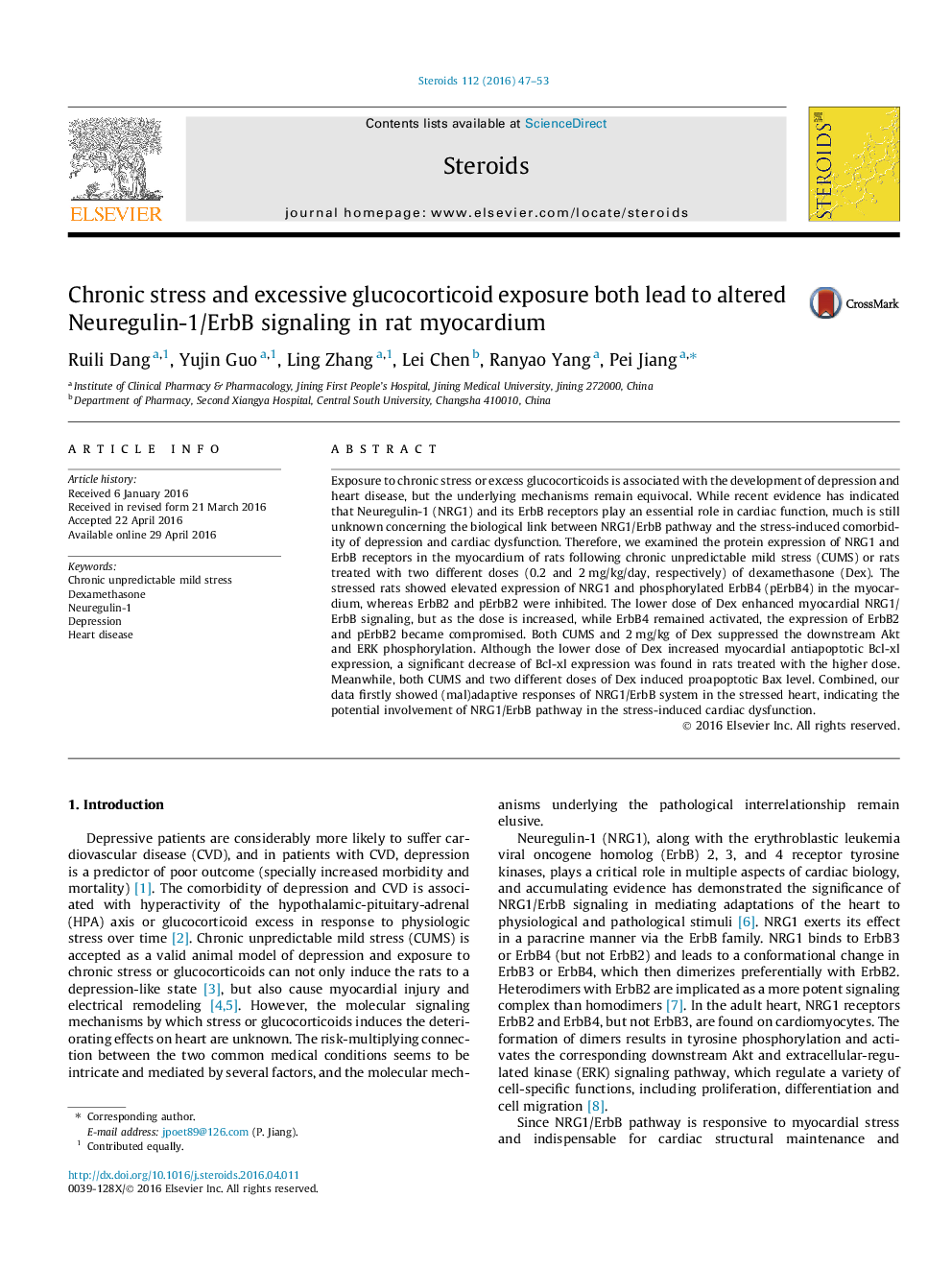| Article ID | Journal | Published Year | Pages | File Type |
|---|---|---|---|---|
| 2027589 | Steroids | 2016 | 7 Pages |
•Both CUMS and 2 mg/kg of Dex induced depression-like behaviors in rats.•CUMS and Dex altered NRG1/ErbB signaling in rat myocardium.•Both CUMS and two different doses of Dex induced proapoptotic Bax expression.
Exposure to chronic stress or excess glucocorticoids is associated with the development of depression and heart disease, but the underlying mechanisms remain equivocal. While recent evidence has indicated that Neuregulin-1 (NRG1) and its ErbB receptors play an essential role in cardiac function, much is still unknown concerning the biological link between NRG1/ErbB pathway and the stress-induced comorbidity of depression and cardiac dysfunction. Therefore, we examined the protein expression of NRG1 and ErbB receptors in the myocardium of rats following chronic unpredictable mild stress (CUMS) or rats treated with two different doses (0.2 and 2 mg/kg/day, respectively) of dexamethasone (Dex). The stressed rats showed elevated expression of NRG1 and phosphorylated ErbB4 (pErbB4) in the myocardium, whereas ErbB2 and pErbB2 were inhibited. The lower dose of Dex enhanced myocardial NRG1/ErbB signaling, but as the dose is increased, while ErbB4 remained activated, the expression of ErbB2 and pErbB2 became compromised. Both CUMS and 2 mg/kg of Dex suppressed the downstream Akt and ERK phosphorylation. Although the lower dose of Dex increased myocardial antiapoptotic Bcl-xl expression, a significant decrease of Bcl-xl expression was found in rats treated with the higher dose. Meanwhile, both CUMS and two different doses of Dex induced proapoptotic Bax level. Combined, our data firstly showed (mal)adaptive responses of NRG1/ErbB system in the stressed heart, indicating the potential involvement of NRG1/ErbB pathway in the stress-induced cardiac dysfunction.
